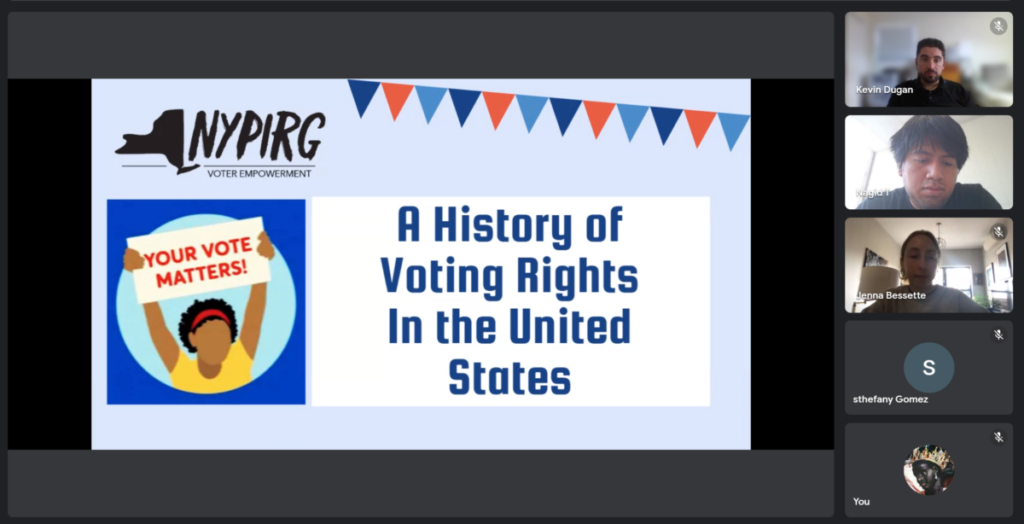
For our final Democracy Student Leader Meeting, was held a presentation of the history of voting rights in United States of America. The presentation was held by Kevin Dugan, Regional Supervisor at NYPIRG , who took us on a time travel across the democracy of the United States of America, starting from its early beginning in 1799. Politics has never really been area of interests for mine and a non-American, I never really engaged with politics whether it be with the news or just casual banter with my peers. As such, I found Kevin’s presentation to be very educational as I learned a lot about how voting came to be and it works today.
My biggest point of interest during the presentation was the history of voting as it pertained to the Black community, something I greatly appreciate Kevin for highlighting. Black people have always been willfully omitted in conversations about how this country came to be so it was quite the educational experience learning about what they went through. It started with the voting rules of 1820, which only freed black slaves to vote in all six states, which were Maine, Massachusetts, New Hampshire, New York, Rhode Island and Vermont. However, this was made particularly difficult for those in New York because they had to own land to vote, an asset that was seldom accessible to them. Nevertheless, some progress was made with the Reconstruction and the 15th Amendment, which allowed guaranteed them citizen rights, voting rights and granted them extended political power such as Mississippi having a majority Black population and the first-time senate election of Hiram Revels and Blanche Bruce. Unfortunately, the end of the Reconstruction led to Jim Crow era which stunted all improvements and proved to be some of the darkest times for Black people.
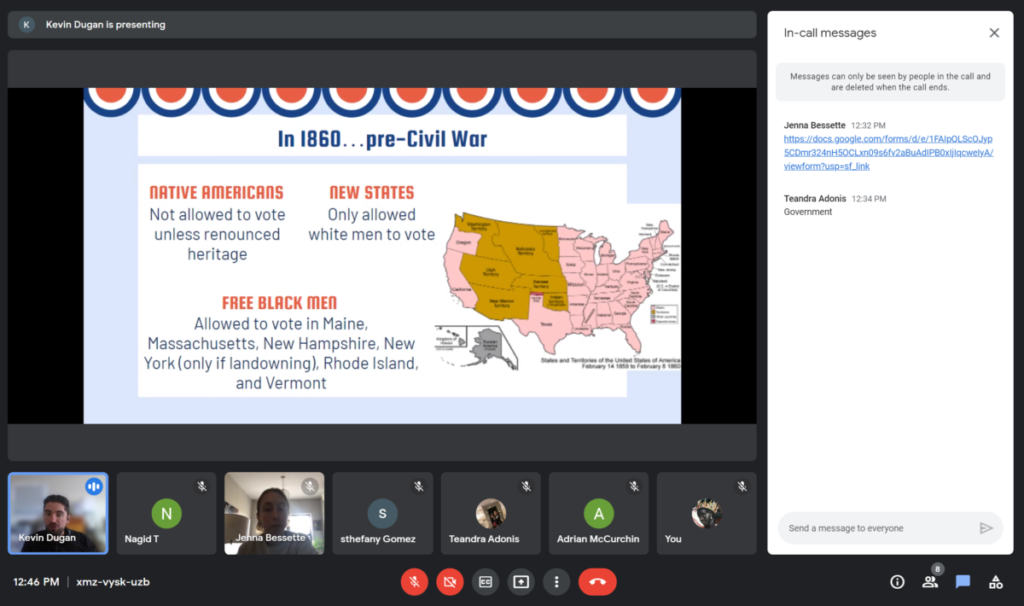
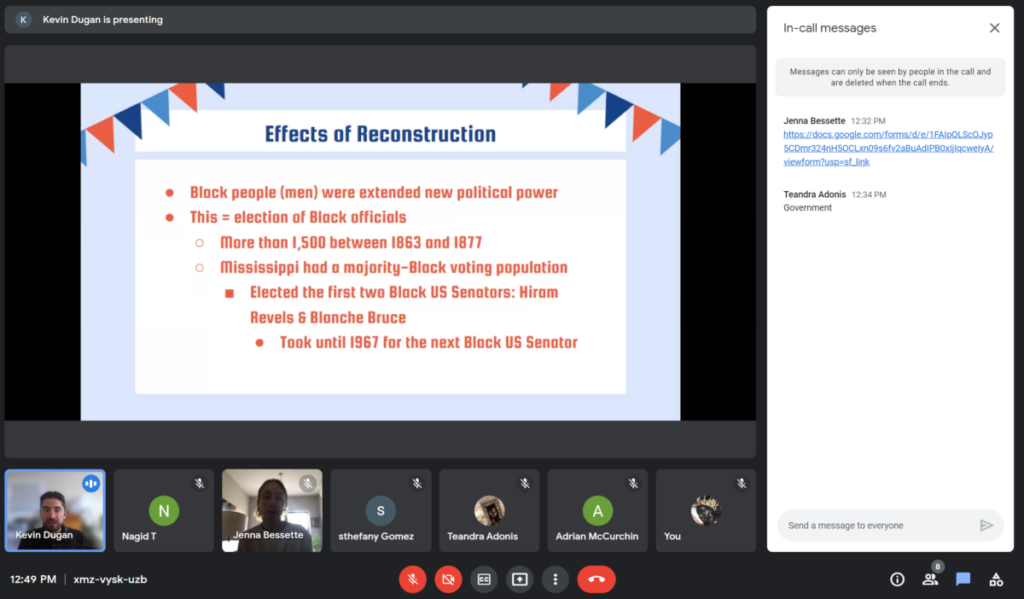
During the Jim Crow Era, many obstacles were put in place to prevent Black Americans from voting. First were Poll Tax, which required an up to one week’s pay in cash, cash that many Black Americans did not have. Second, was the Grandfather Clause, which required a voter’s grandfather to have been a voter, which was not the case for Black people as their grandfathers were slaves. Third and last, were English Requirement and Literacy Tests, to prove one’s ability to read English, a lot of Black people were uneducated and therefore illiterate.
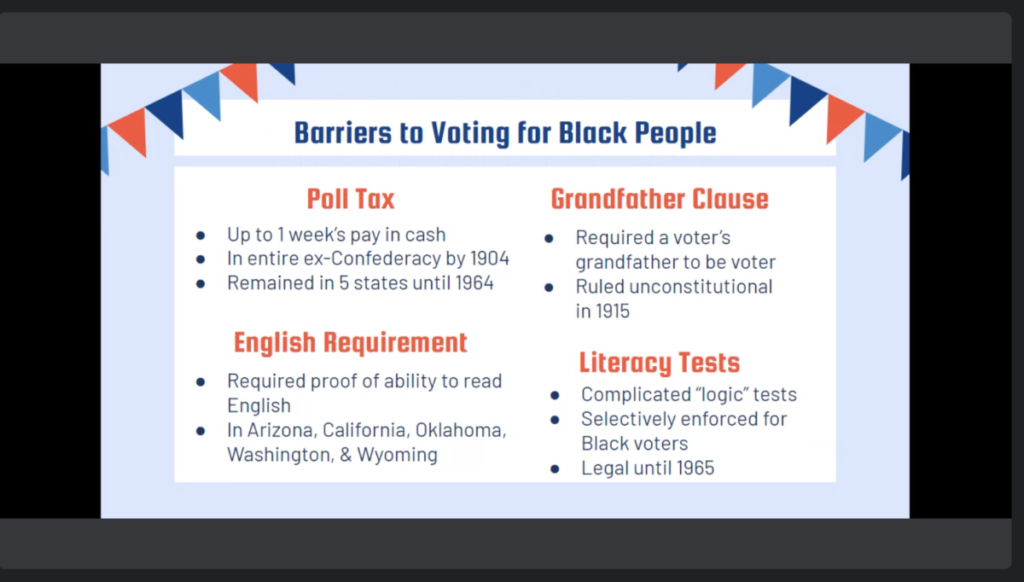
The events went on to take a violent and bloody turn with the recurring massacres of Black Americans in cities like Wilmington, Ocoee, Selma and Montgomery, the latter two know for Bloody Sunday. These attacks were at the hands of the white supremacist and terrorist organization like the Ku Klux Klan, who was responsible for the murders of 10,000 Black people and allies. Furthermore, Black soldiers, who were crucial to U.S. victories during the World War were still segregated and died for democracy but still could not vote. However, Black people fought back for their rights with the rise of civil rights activist Martin Luther King Jr. MLK, who founded the SCLC and orchestrated the March to Washington, which successful led to the passing of the 24th Amendment in 1963, prohibiting Poll Tax.
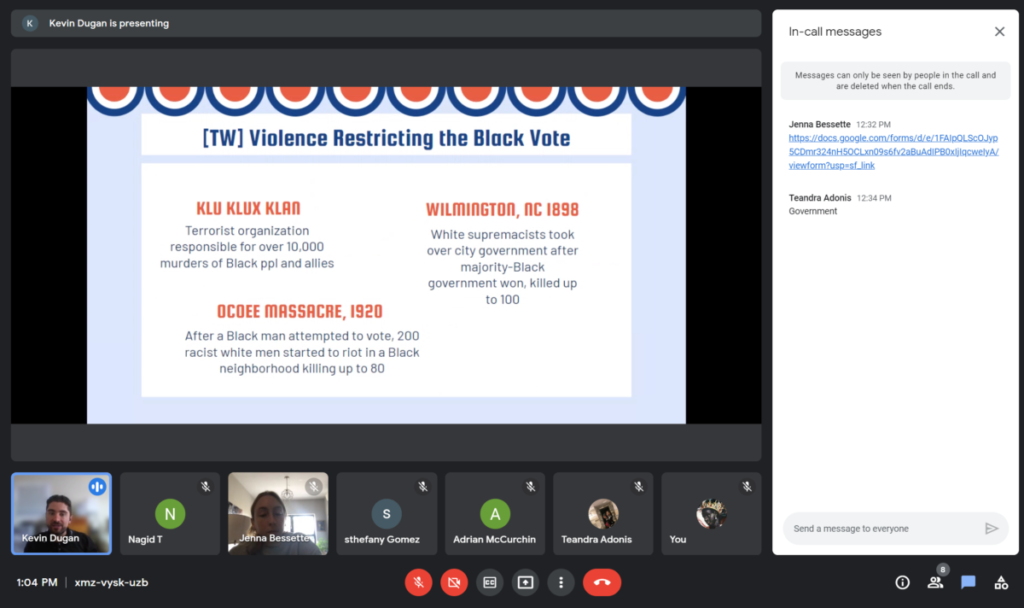
Other notable pieces of information I found insightful, were the rules of eligibility to vote in the United States of America. As a non-American, I found it really interesting these rules vary across states, the ones in New York are not the same as the ones in California. Also, it was equally interesting to compare how different they are from those in my country, especially in the age, in New York, you can vote at 18 years whereas in Cameroon, you must be 25 years old. It is fascinating to see how the voice of the youth suffrage is highly acknowledged and how events such as NYPIRG tabling events are constantly put in place to encourage young people to vote. In Cameroon, it is not really the case as the youth is not particularly interested in politics, mainly because of the age restriction but also because of the lack of educational resources to learn on the subject so when the times comes, they are able to make the soundest of decisions.
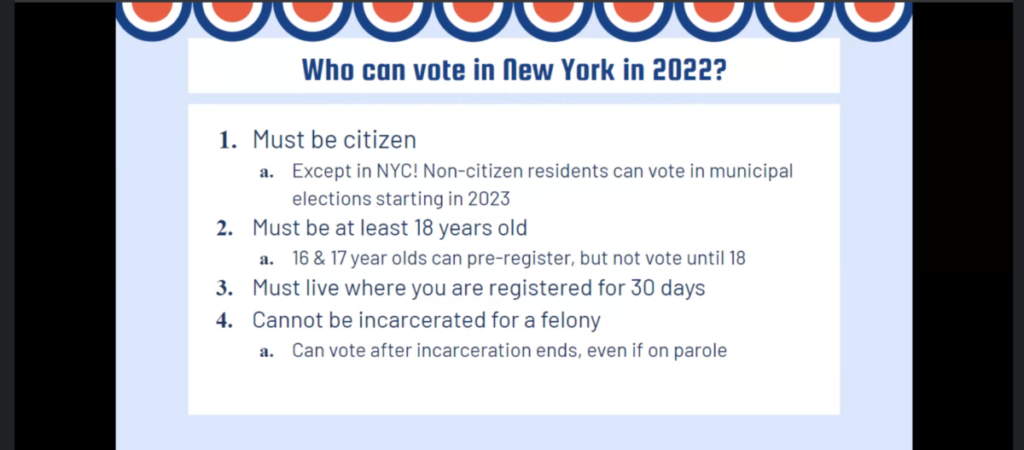
My biggest takeaway from this presentation is how much hell Black Americans have gone through and the work the forefathers have invested for today’s generation to still receive only semblance of acknowledgment and consideration. It was deeply saddening of how hard life was for those that came before us and angering when you consider that they were forced to be here and built this country from the ground up. As Kimberly Latrice Jones put it, white people have always had a history of breaking the contract, whenever Black people make any progress with a game created by the former, those change the rules to make it even more harder for the latter, breaking the contract.


